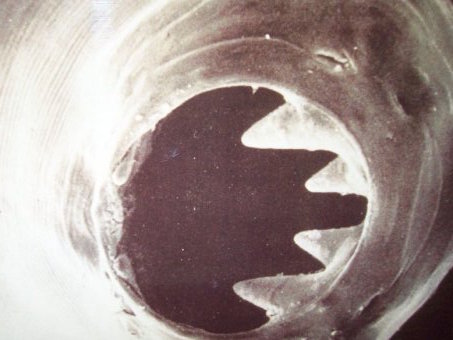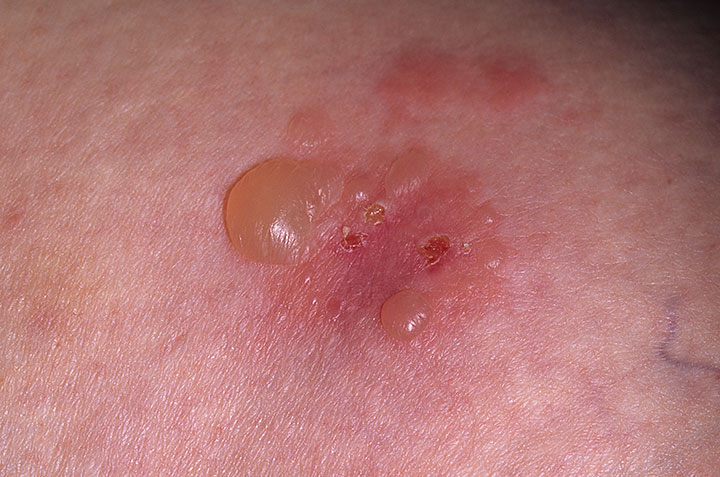Could You Stomach This ‘Cure’ for Celiac Disease?
 November 9, 2015 – Hookworm larvae to be injected into coeliacs in bid to treat gluten intolerance, ABC News, Australia.
November 9, 2015 – Hookworm larvae to be injected into coeliacs in bid to treat gluten intolerance, ABC News, Australia.
40 patients will be injected with hookworm larvae as a follow-up to a pilot study that suggested the parasite is effective in treating coeliac disease. Hookworm larvae will be injected into coeliacs as part of a revolutionary treatment for the debilitating illness that affects one out of every 70 Australians. The larvae are put under a bandage, they burrow into the patients’ skin to make their way into their intestines. Subjects will then have gluten gradually reintroduce into their diet.
James Cook University doctors John Croese and Paul Giacomin hope to find a drug derived from the parasites to treat gluten intolerance.
It follows a successful study in which patients were able to eat the equivalent of a bowl of spaghetti, a meal which would usually cause diarrhoea, cramps and vomiting. Dr Giacomin said hookworms may secrete anti-inflammatory proteins, which could be put in a pill. Hookworms do not breed within the human body so there is no chance of the parasite multiplying to dangerous numbers.
“Obviously our goal is not really to infect all of Australia or the developed world with these hookworms,” he said. “So what we really want to do is use this money and this trial to really understand in more detail the mechanism of how the worms suppress the inflammatory response. [We want to] look at the different molecules, proteins and enzymes these worms are producing.”
“We will see if any of these molecules alone, if they’re included in a pill-based medication, might be able to mimic the immunoregulatory response of the worm, and therefore be a quite marketable, good therapeutic for restoring gluten tolerance.”
Participants in the new trial will have their gluten levels elevated far above those in the pilot study as they progress towards eating a normal diet.
Brisbane man Peter Letheren has had coeliac disease for about 15 years. He breaks out in a huge blisters all over his body if he eats gluten.

Dermatitis Herpetiformis
“It’s incredibly difficult to live with. I hate it with a passion. The food doesn’t taste as good as normal food, you can’t go out and have a meal with all your friends … so you feel like a leper. “A gluten-free diet cleaned up my rash and that was wonderful but, yeah, it doesn’t give you a normal life.”
He took part in a pilot study a few years ago and is keen to be re-infected with the worms in the new trial.
“It was incredibly pleasant. They just put a Bandaid on your forearm and it just feels like they’ve got some Tabasco sauce on there. I actually went out and I went to town and I had pizza and ice-cream, and salad sandwiches and Subway, just all the things I’ve missed for the last 15 years. And I was absolutely fine, I was terrific. The worms take about four years before they die, unfortunately – and we call them our friends. Everyone in the trial called the worms our friends, so we don’t want them to leave us, but they do.”
Symptoms of coeliac disease vary, with the most common being gastrointestinal upsets. Others symptoms, some more severe, may include fatigue, anaemia, unexplained weight loss or gain, bone or joint pains and swelling of the mouth or tongue.
[Does the thought of feeding one’s resident hookworm a bowl of spaghetti make your stomach turn?]














